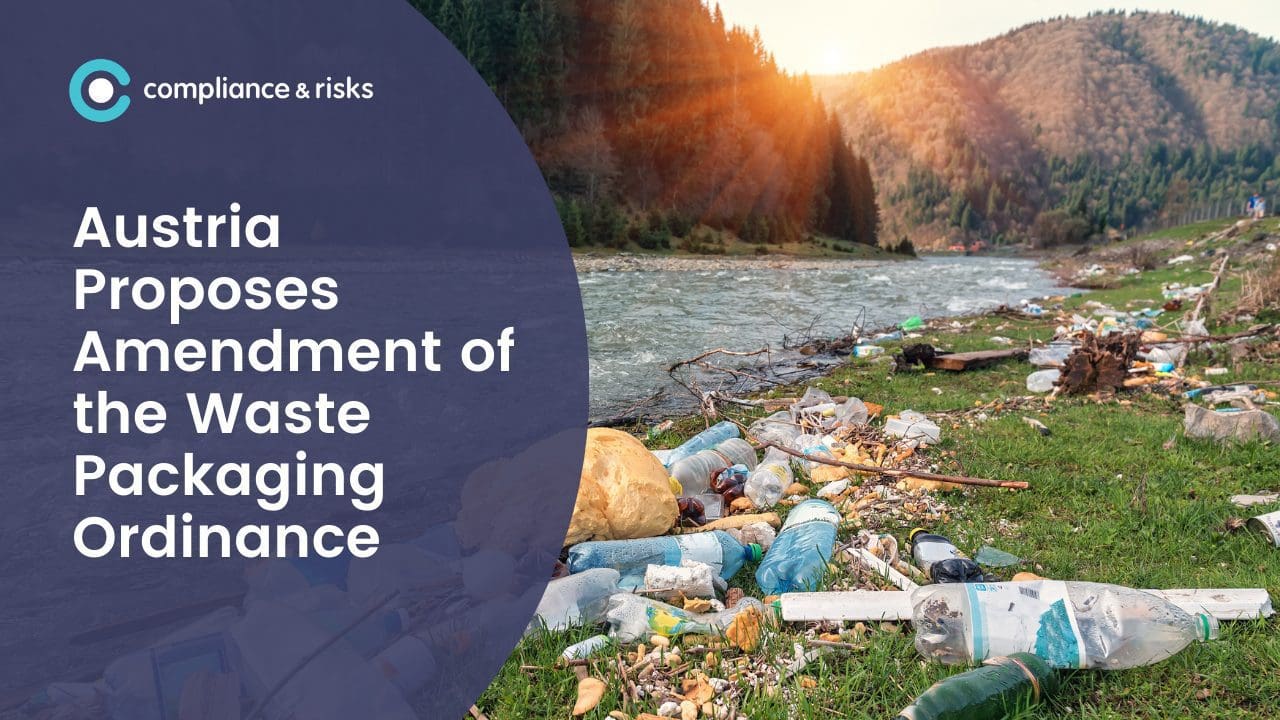
Austria Proposes Amendment of the Waste Packaging Ordinance

On 10 June 2021, the Austrian Ministry for Climate Protection, Environment, Energy, Mobility, Innovation, and Technology proposed the amendment of the waste packaging Ordinance (Verpackungsverordnungs-Novelle 2021).
The Draft has been proposed in an effort to further conserve resources through waste avoidance and recycling, as well as to protect aquatic environments. The Draft aims to achieve these objectives by increasing the collection and recycling mass of plastic packaging and ensuring manufacturer responsibility for cleaning costs.
In addition to the above the Draft serves to implement the following EU Directives;
- Directive (EU) 2019/904 on the reduction of the impact of certain plastic products on the environment
- Directive (EU) 2018/852 amending Directive 94/62/EC on packaging and packaging waste
The Draft proposes the following measures for the avoidance of packaging waste:
- Packaging producers must ensure that the volume and weight of packaging is limited to the minimum requirement, to maintain the required safety and hygiene of the packaged product and to avoid food waste
- From 1 January 2030, packaging producers may only place plastic packaging into circulation, which can either be reused or is recyclable
The Draft proposes the adoption of the following waste recycling targets:
1. The minimum amount of packaging materials placed on the market to be recycled in a calendar year:
|
1. | Paper, cardboard, paperboard, and corrugated cardboard |
60% |
|
2. |
Glass |
60% |
|
3. |
Metals |
50% |
|
4. |
Plastics |
22.5% |
|
5. |
Wood |
15% |
2. From the year 2025 at the latest, at least 65 percent by weight of all packaging waste generated in Austria must be recycled yearly. Furthermore, at least the following proportions are to be achieved for each material stream:
|
1. |
Paper, cardboard, paperboard and corrugated cardboard |
75% |
|
2. |
Glass |
70% |
|
3. |
Ferrous metals |
70% |
|
4. |
aluminum |
50% |
|
5. |
Plastics |
50% |
|
6. |
Wood |
25% |
3. From the year 2030 at the latest, at least 70 percent by weight of all packaging waste generated in Austria must be recycled yearly. Furthermore, at least the following proportions are to be achieved for each material stream:
|
1. |
Paper, cardboard, paperboard and corrugated cardboard |
85% |
|
2. |
Glass |
75% |
|
3. |
Ferrous metals |
80% |
|
4. |
aluminum |
60% |
|
5. |
Plastics |
55% |
|
6. |
Wood |
30% |
The Draft also proposes the inclusion of measures requiring obligated packaging producers to submit reporting data on reusable packaging via the collection and recycling systems. If an obligated producer only uses reusable packaging and therefore does not take part in a collection and recycling system, they are responsible for fulfilling the reporting obligations that are necessary to comply with the EU reporting obligations. These producers are therefore required to retain records on reusable packaging data and submit these electronically to the Federal Ministry for Climate Protection, Environment, Energy, Mobility, Innovation and Technology by way of register. This data should be submitted at the latest three months after the end of each calendar year for the previous calendar year.
Section 6 of the Draft also states that reusable packaging may be marked with a label to distinguish it from one-way packaging.
Individuals who are based in another EU member state and sell packaging in Austria can also appoint an authorized representative, in order to fulfill certain manufacturer obligations. This opportunity will apply to packaging placed on the market in Austria from 1 January 2023 (registration obligations are outlined in Section 16). As specified in Section 16b foreign mail order companies must appoint an authorized representative for packaging placed on the market in Austria from 1 January 2023.
Lastly, manufacturers of certain single-use plastic products (disposable tableware and cutlery, single-use plastic products and fishing gear etc.) must make an appropriate contribution to the costs of cleaning campaigns by municipalities and municipal associations.
It is anticipated that the amendment will enter into force sometime in 2021.
Want the latest news and updates on hot regulatory topics and trends from across the globe? Sign up to our newsletter!
Market Insights straight to your inbox
Join 30,000+ product compliance & market access experts around the world









